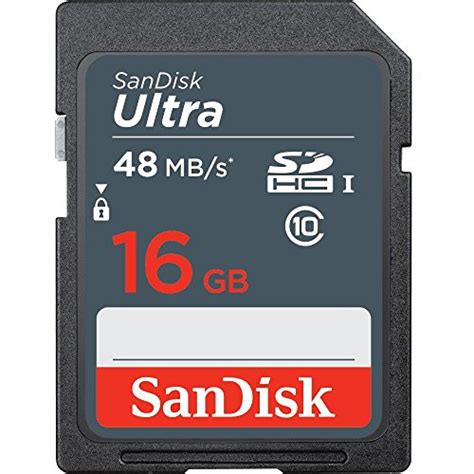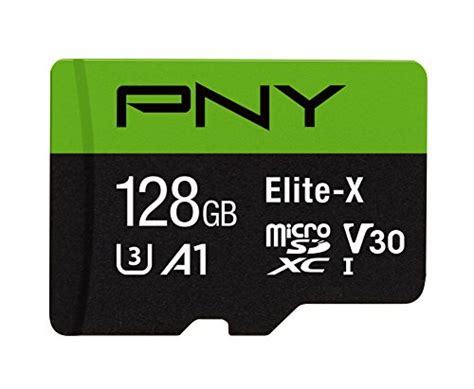With a Bachelor of Science in computer science from University of Maryland Global Campus, you'll be able to plan, design, and optimize computer software and hardware systems for commercial and government environments. This versatile major provides you with a foundation in programming languages, software development, complex algorithms, and graphics and visualization.
This program is also available as a minor.
The following required courses may be applied to general education or elective requirements:
UMGC outlines the options available to fulfill the 41 credits of general education coursework for bachelor's degrees on the General Education Requirements webpage.
In addition to the major, elective, and general education courses and requirements outlined on this page, please review the overall bachelor's degree requirements.
This is our recommended course sequence to progress through this program. You may take multiple courses simultaneously, up to your course load limit. You cannot take a prerequisite with its subsequent course during the same session. Your plan will be unique and dependent on multiple factors, including the number of credits you transfer to this program. Contact an advisor if you have any questions about this plan, course alternatives, or your course load limit.
Sequence Course Requirement(s) Fulfilled 1 Introduction to Research (1 Credit, LIBS 150) General Education: Research & Computing Literacy 2 Program and Career Exploration in Technology (3 Credits, PACE 111T) General Education: Research & Computing Literacy 3 Academic Writing I (3 Credits, WRTG 111) General Education: Communication 4 Introduction to Problem Solving and Algorithm Design (3 Credits, CMIS 102) General Education: Research & Computing Literacy; Prerequisite to Major 5 Elements of Nutrition (3 Credits, NUTR 100) General Education: Biological & Physical Sciences 6 Introductory Programming (3 Credits, CMIS 141) Major 7 Foundations of Oral Communication (3 Credits, SPCH 100) General Education: Communication 8 Calculus I (4 Credits, MATH 140) General Education: Math; Prerequisite to Major This course requires a prerequisite not listed in this sequence. 9 Academic Writing II (3 Credits, WRTG 112) General Education: Communication 10 Intermediate Programming (3 Credits, CMIS 242) Major 11 Technological Transformations (3 Credits, HIST 125) General Education: Arts & Humanities 12 Introduction to Biology (4 Credits, BIOL 103) General Education: Biological & Physical Sciences 13 Technology in Contemporary Society (3 Credits, BEHS 103) General Education: Behavioral & Social Sciences 14 Understanding Movies (3 Credits, ARTH 334) General Education: Arts & Humanities 15 CMSC 150 Major 16 Economics in the Information Age (3 Credits, ECON 103) General Education: Behavioral & Social Sciences 17 Computer Systems and Architecture (3 Credits, CMIS 310) Major 18 Calculus II (4 Credits, MATH 141) Major 19 SDEV 300 Major 20 3-credit elective course Elective 21 Data Structures and Analysis (3 Credits, CMSC 350) Major 22 3-credit elective course Elective 23 CMSC 330 Major 24 Advanced Technical Writing (3 Credits, WRTG 393) General Education: Communication 25 3-credit elective course Elective 26 CMSC 335 Major 27 3-credit elective course Elective 28 3-credit elective course Elective 29 Software Engineering Principles and Techniques (3 Credits, CMIS 330) Major 30 3-credit elective course Elective 31 Relational Database Concepts and Applications (3 Credits, CMIS 320) Major 32 3-credit elective course Elective 33 3-credit elective course Elective 34 CMSC 430 Major 35 3-credit elective course Elective 36 3-credit elective course Elective 37 CMSC 451 Major 38 3-credit elective course Elective 39 Current Trends and Projects in Computer Science (3 Credits, CMSC 495) Major 40 2-credit elective course Elective
The following required courses may be applied to general education or elective requirements:
UMGC outlines the options available to fulfill the 41 credits of general education coursework for bachelor's degrees on the General Education Requirements webpage.
In addition to the major, elective, and general education courses and requirements outlined on this page, please review the overall bachelor's degree requirements.
This is our recommended course sequence to progress through this program. You may take multiple courses simultaneously, up to your course load limit. You cannot take a prerequisite with its subsequent course during the same session. Your plan will be unique and dependent on multiple factors, including the number of credits you transfer to this program. Contact an advisor if you have any questions about this plan, course alternatives, or your course load limit.
Sequence Course Requirement(s) Fulfilled 1 Introduction to Research (1 Credit, LIBS 150) General Education: Research & Computing Literacy 2 Program and Career Exploration in Technology (3 Credits, PACE 111T) General Education: Research & Computing Literacy 3 Academic Writing I (3 Credits, WRTG 111) General Education: Communication 4 Introduction to Problem Solving and Algorithm Design (3 Credits, CMIS 102) General Education: Research & Computing Literacy; Prerequisite to Major 5 Elements of Nutrition (3 Credits, NUTR 100) General Education: Biological & Physical Sciences 6 Introductory Programming (3 Credits, CMIS 141) Major 7 Foundations of Oral Communication (3 Credits, SPCH 100) General Education: Communication 8 Calculus I (4 Credits, MATH 140) General Education: Math; Prerequisite to Major This course requires a prerequisite not listed in this sequence. 9 Academic Writing II (3 Credits, WRTG 112) General Education: Communication 10 Intermediate Programming (3 Credits, CMIS 242) Major 11 Technological Transformations (3 Credits, HIST 125) General Education: Arts & Humanities 12 Introduction to Biology (4 Credits, BIOL 103) General Education: Biological & Physical Sciences 13 Technology in Contemporary Society (3 Credits, BEHS 103) General Education: Behavioral & Social Sciences 14 Understanding Movies (3 Credits, ARTH 334) General Education: Arts & Humanities 15 CMSC 150 Major 16 Economics in the Information Age (3 Credits, ECON 103) General Education: Behavioral & Social Sciences 17 Computer Systems and Architecture (3 Credits, CMIS 310) Major 18 Calculus II (4 Credits, MATH 141) Major 19 SDEV 300 Major 20 3-credit elective course Elective 21 Data Structures and Analysis (3 Credits, CMSC 350) Major 22 3-credit elective course Elective 23 CMSC 330 Major 24 Advanced Technical Writing (3 Credits, WRTG 393) General Education: Communication 25 3-credit elective course Elective 26 CMSC 335 Major 27 3-credit elective course Elective 28 3-credit elective course Elective 29 Software Engineering Principles and Techniques (3 Credits, CMIS 330) Major 30 3-credit elective course Elective 31 Relational Database Concepts and Applications (3 Credits, CMIS 320) Major 32 3-credit elective course Elective 33 3-credit elective course Elective 34 CMSC 430 Major 35 3-credit elective course Elective 36 3-credit elective course Elective 37 CMSC 451 Major 38 3-credit elective course Elective 39 Current Trends and Projects in Computer Science (3 Credits, CMSC 495) Major 40 2-credit elective course Elective
Our helpful admissions advisors can help you choose an academic program to fit your career goals, estimate your transfer credits, and develop a plan for your education costs that fits your budget. If you're a current UMGC student, please visit the Help Center.
International numbers, start with a plus sign (+) & country code
By submitting this form, you are giving your express written consent without obligation for UMGC to contact you regarding our educational programs and services using e-mail, phone, or text, including automated technology for calls and/or texts to the mobile number(s) provided. For more details, including how to opt out, read our privacy policy or contact an admissions advisor.
Request Info DSN: (315) 225-3680 Comm: 042-507-6544
Asia Headquarters 〒197-0001 Tokyo Prefecture Fussa City Yokota Air Base UMGC Asia, Bldg. 445 Japan
Asia Mailing Address UMGC Asia Unit 5060, Box 100 APO AP 96328-0100
Request Info DSN: (315) 225-3680 Comm: 042-507-6544
Asia Headquarters 〒197-0001 Tokyo Prefecture Fussa City Yokota Air Base UMGC Asia, Bldg. 445 Japan
Asia Mailing Address UMGC Asia Unit 5060, Box 100 APO AP 96328-0100
 Sandisk 16 Gb Class 10 Sd Hc Ultra Flash Memory Card 10 Pack Bundle With
Sandisk 16 Gb Class 10 Sd Hc Ultra Flash Memory Card 10 Pack Bundle With
 Fairwin Braided Leather Dog Training Leash 6 Foot 56 Foot Military Grade H
Fairwin Braided Leather Dog Training Leash 6 Foot 56 Foot Military Grade H
 3m Reflective Dog Leash 5ft Long With Traffic Padded Handle Dog Training Leas
3m Reflective Dog Leash 5ft Long With Traffic Padded Handle Dog Training Leas
 How To Be Your Dogs Best Friend The Classic Training Manual For Dog Owners
How To Be Your Dogs Best Friend The Classic Training Manual For Dog Owners
 Classical Naptime For Tots
Classical Naptime For Tots
 Doggie Stylz Set Of 2 Reflective Therapy Dog In Training Removable Patches Wit
Doggie Stylz Set Of 2 Reflective Therapy Dog In Training Removable Patches Wit
 6 Pcs Service Dog In Trainingworkingstress Amp Anxiety Response Embroidere
6 Pcs Service Dog In Trainingworkingstress Amp Anxiety Response Embroidere
 Service Dog In Training Patch With Hook Back And Reflective Lettering For Servic
Service Dog In Training Patch With Hook Back And Reflective Lettering For Servic
 Four Paws Wee Wee Pee Pads For Dogs And Puppies Training L Gigantic Xl St
Four Paws Wee Wee Pee Pads For Dogs And Puppies Training L Gigantic Xl St
 Pny 128gb Elite X Class 10 U3 V30 Microsdxc Flash Memory Card 100mbs
Pny 128gb Elite X Class 10 U3 V30 Microsdxc Flash Memory Card 100mbs
 Academy Of Beasts V Shifter Romance
Academy Of Beasts V Shifter Romance
 Beast Academy 5a Practice
Beast Academy 5a Practice












![DevOps Engineer Salary in the US in 2021 [For Fresher’s & Experienced] DevOps Engineer Salary in the US in 2021 [For Fresher’s & Experienced]](https://www.courses-for-you.com/images/uploads/thumbs/11-38.jpeg)

